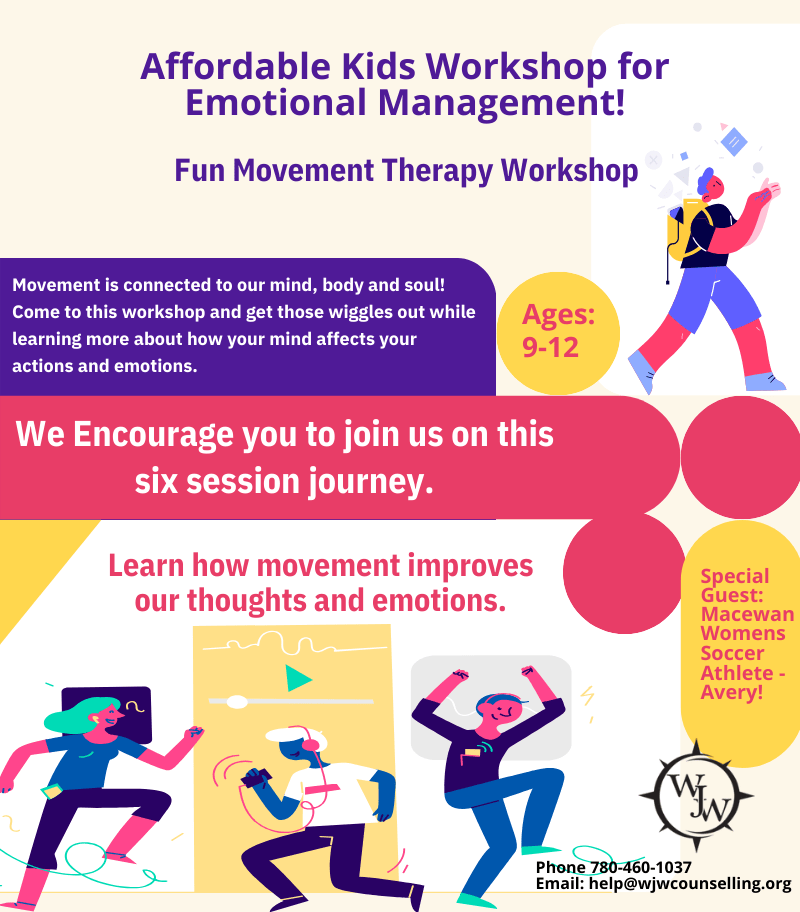As parents, you may have already noticed how expressive children are during play. Play therapy lets mental health providers tap into this form of communication, using play as a way to uncover what’s troubling them. If you’re looking for support for your child and are worried that they won’t enjoy talking to a counsellor, play therapy might be the solution you need!
Although it’s called “play therapy”, it’s actually a specialized therapeutic approach that combines play and creative activities to help individuals explore their thoughts, emotions, and experiences. While it’s especially helpful for children, adults who find expressing themselves more challenging or who prefer creative or symbolic forms of communication can also benefit from play therapy.
Why engage in play therapy?
Taking good care of ourselves includes paying attention to the state of our mental health. Play therapy provides an opportunity for creative exploration of our feelings, and can help us become more attuned to them. As therapists, it allows us to recognize underlying themes in play, and provide support in a comfortable and safe environment.
If play therapy sounds like something that would be a good fit for you or your child, book a consultation to find out how we can help! Here are some of the many benefits offered by play therapy with a trained therapist:
Emotional expression
Play therapy is an ideal environment for expressing emotions freely. Through play, it’s possible to communicate inner thoughts, feelings, and experiences that may be difficult to express through words alone. Play gives us an opportunity for emotional release and exploration.
Non-verbal communication
It can be challenging to draw out what’s bothering your child, and even adults aren’t always comfortable communicating verbally. This is especially true if someone’s had a traumatic experience. Play therapy lets us communicate using toys, art materials, and other therapeutic tools that give therapists insight into what someone is struggling with and what they need.
Symbolic representation
Play therapy helps individuals use symbols or metaphors to represent their experiences and their inner thoughts. This can be helpful to process emotions in a way that feels safer and less overwhelming because it provides a sense of distance from painful experiences. In this way, play therapy allows for non-threatening exploration and healing.
Emotional regulation
Engaging in play provides opportunities to learn and practice emotional regulation skills. This could mean identifying and labeling emotions accurately, finding healthy ways to express them, and developing coping strategies to deal with unpleasant or overwhelming feelings. Through play, we can experiment with different emotional states and learn how to manage them constructively.
Trust building
We always aim to provide a play therapy setting that’s characterized by empathy and acceptance. This helps to establish a safe and trusting relationship between us and our clients, and can foster a sense of security that allows for deeper exploration of sensitive topics. If your child is having a hard time expressing their feelings to you, it isn’t a reflection of your parenting. Play therapy simply offers an alternative trusting relationship that might be better suited to unpacking their big feelings.
Healing trauma
Trauma means having experienced something that is too overwhelming to process effectively. It’s essential to get professional mental health support if you’re feeling overcome by a traumatic experience or unresolved conflict. Play therapy can be a positive experience that allows individuals to gain new perspectives, learn ways to cope with their traumatic experiences, and move gradually towards healing from their past.
Enhanced self-esteem
Building self-confidence is an important aspect of play therapy. It allows individuals to experience success and learn to overcome challenges. This newfound confidence can extend beyond therapy and positively impact self-esteem and resiliency in their daily lives.
For all these reasons, play therapy has gained a lot of attention in recent years as an effective way to support mental health, especially when traditional talk therapy methods are less suitable. In fact, CBC recently shared a good news story about a child who’d engaged in play therapy to help process the traumatic experience of his brother’s death. Zach Bulger was only six when his brother died of brain cancer, and he wasn’t able to process the immense grief he was experiencing. Play therapy gave him the opportunity to explore his feelings in a comfortable environment, and the space




